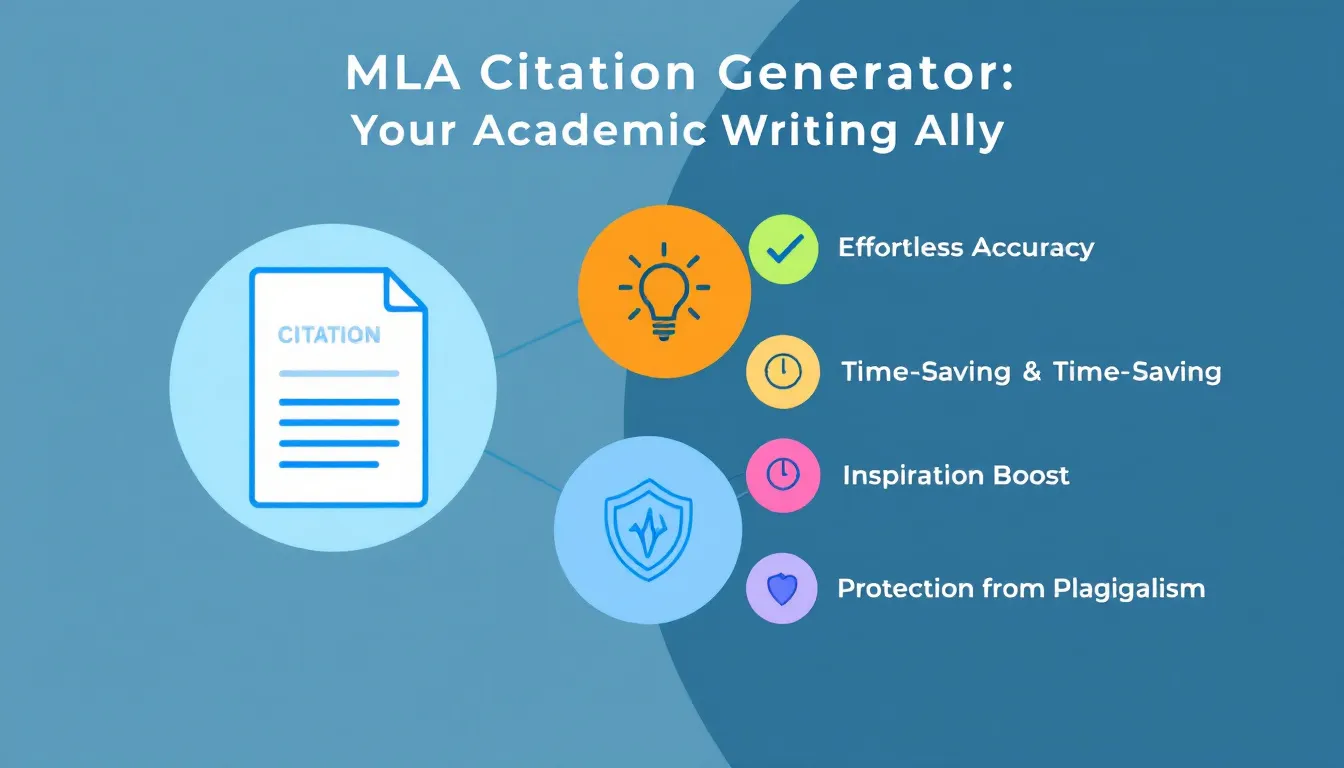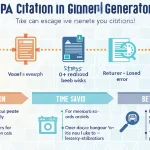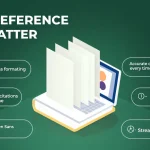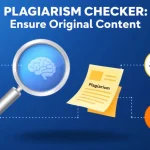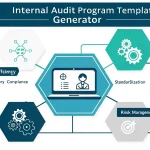MLA Citation Generator
Is this tool helpful?
How to Use the MLA Citation Generator Effectively
You can quickly create accurate MLA citations by filling out the fields below. Here’s how to use each part of the tool with clear examples:
-
Enter the Source Text: Type the exact quote or paraphrase you want to cite.
Example inputs:- “Education transforms societies by empowering individuals to achieve their potential.”
- “The economic effects of globalization continue to reshape national policies worldwide.”
-
Provide the Author’s Name: Enter the full name of the author responsible for the work.
Example inputs:- “Laura M. Thompson”
- “David K. Reynolds”
-
Enter the Title of the Work: Fill in the complete title of the book, article, or webpage.
Example inputs:- “Global Economic Trends and Future Outlook”
- “Innovative Teaching Methods in Modern Classrooms”
-
Publication Name (Optional): Add the publication or journal name if relevant.
Example inputs:- “International Economics Review”
- “Journal of Higher Education”
-
Publisher’s Name (Optional): Enter the name of the publisher if you know it.
Example inputs:- “Cambridge University Press”
- “HarperCollins”
-
Year of Publication: Specify the publication year. This field is required.
Example inputs:- “2019”
- “2021”
-
Page Number (Optional): Include page numbers if citing a particular section.
Example inputs:- “55”
- “102-105”
- Generate the Citation: Click the button to create your MLA citation instantly.
- Review and Copy: Check the generated citation for accuracy. Use it directly in your bibliography or works cited list.
MLA Citation Generator: Definition, Purpose, and Benefits
The MLA Citation Generator helps you create properly formatted citations in the Modern Language Association (MLA) format quickly and without hassle. It automates the complex rules of MLA style, saving time and improving accuracy in your academic writing.
This tool is essential for students, researchers, and academics who want to maintain academic integrity by citing sources correctly. By entering details about your source, you receive a citation that adheres to the latest MLA standards — helping you avoid mistakes like incorrect punctuation, italicization, or element order.
Key Benefits
- Save Time: Automate citation formatting so you can focus on research and writing.
- Ensure Accuracy: Get citations that follow the newest MLA guidelines exactly.
- Maintain Consistency: Use the same citation style across all your sources.
- Handle Various Sources: Create citations for books, articles, websites, and more.
- Learn MLA Style: See examples of MLA citations to improve your citation skills.
Practical Uses of the MLA Citation Generator
You can apply this MLA citation tool in many academic and professional settings where proper source credit is vital. Here are some common ways to use it:
1. Academic Writing and Research Papers
When writing essays, theses, or dissertations, you must cite every source correctly. This tool helps you generate citations for diverse materials—from journal articles to digital content—ensuring your bibliography is ready for submission.
2. Literature Reviews
Literature reviews often reference dozens of sources. Use this citation generator to maintain consistent MLA formatting, saving you hours of manual editing.
3. Digital Humanities and Multimedia Projects
When citing recordings, websites, or social media posts in digital humanities projects, this tool formats citations according to MLA rules, ensuring all media types are properly credited.
4. Journalism and Long-form Articles
Journalists can use the tool to cite sources accurately in in-depth reports or investigative pieces, promoting transparency and credibility.
How the MLA Citation Generator Solves Common Citation Challenges
Simplifying MLA Format Complexity
The MLA style has specific rules for each source type. This generator automates element order, italics, and punctuation based on your input.
Example:
Anderson, Claire, and Mark Lee. Exploring Renewable Energy Sources. GreenTech Press, 2020.
Reducing Time Under Tight Deadlines
When you face deadlines, manually writing citations slows you down. This tool cuts the time needed, letting you focus on composing your work.
Example:
A student with 50 sources can generate all MLA citations in minutes, compared to hours spent formatting each manually.
Handling Diverse Source Types Accurately
From social media posts to academic journals, sources vary widely. The generator adapts formatting rules accordingly.
Example:
Garcia, Maria (@mgarcia). “Launching our new community garden project!” Twitter, 12 Mar. 2024, 9:00 a.m., twitter.com/mgarcia/status/9876543210.
Keeping Up with MLA Updates
MLA guidelines evolve over time. The generator updates regularly so you always produce current citations.
Example:
Nguyen, Minh. “Virtual Reality in Education.” Tech Education Journal, vol. 29, no. 1, 2023, pp. 34-50, doi:10.1000/tej2023.01.
Ensuring Consistency in Large Documents
Multiple citations spread across lengthy papers stay uniform in appearance and style, improving readability and professionalism.
Example:
Morgan, Sarah. “Climate Policy Frameworks.” Environmental Policy Review, vol. 18, no. 4, 2022, pp. 120-138.
Taylor, James, and Emma Clark. “Sustainable Urban Development.” City Planning Journal, 2023.
Important Disclaimer
The calculations, results, and content provided by our tools are not guaranteed to be accurate, complete, or reliable. Users are responsible for verifying and interpreting the results. Our content and tools may contain errors, biases, or inconsistencies. Do not enter personal data, sensitive information, or personally identifiable information in our web forms or tools. Such data entry violates our terms of service and may result in unauthorized disclosure to third parties. We reserve the right to save inputs and outputs from our tools for the purposes of error debugging, bias identification, and performance improvement. External companies providing AI models used in our tools may also save and process data in accordance with their own policies. By using our tools, you consent to this data collection and processing. We reserve the right to limit the usage of our tools based on current usability factors.
